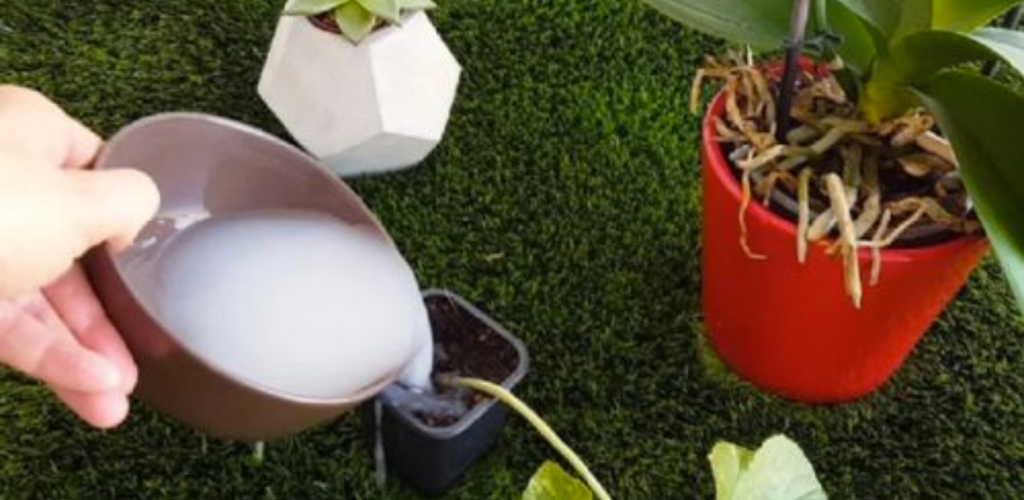Rice Water: A Free Homemade Fertilizer for Your Garden
Gardening enthusiasts and environmentally conscious individuals are increasingly turning to homemade fertilizers to nourish their plants while minimizing their carbon footprint. One natural and cost-effective option is rice water. Rice water, a liquid produced by soaking or cooking rice, has been used for centuries in various cultures for its numerous benefits, including its potential as a plant fertilizer. This article will explore the science behind rice water as a homemade fertilizer and provide practical guidance on how to use it to promote the growth of your plants.
The Science Behind Rice Water as Fertilizer
Rice water contains several nutrients and compounds that can benefit plants. These include:
- Starch: Rice water is rich in starch, which can serve as an energy source for plants. Starch acts as a slow-release carbohydrate, providing a steady supply of energy for growth and development.
- Vitamins and Minerals: Rice water contains various vitamins and minerals, such as B vitamins, potassium, and phosphorus. These nutrients are essential for plant growth, as they play a role in photosynthesis, root development, and overall plant health.
- Beneficial Microorganisms: During the fermentation process of rice water, beneficial microorganisms such as lactic acid bacteria and yeasts can multiply. These microorganisms can contribute to the biological activity of the soil and help improve nutrient uptake by plants.
- Antioxidants: Rice water also contains antioxidants, such as ferulic acid and oryzanol, which can help protect plants from oxidative stress and improve their resistance against environmental factors.
Using Rice Water as Fertilizer
Now that we understand the potential benefits of rice water for plants, let’s dive into how to use it as a homemade fertilizer:
Collecting Rice Water : Collect the water used to rinse or soak rice in a container. This is known as “plain rice water.” Alternatively, you can use the leftover water after cooking rice, which may be richer in nutrients due to the starch and nutrients released during cooking.
Fermentation Process: To improve nutrient content and microbial activity, allow the harvested rice water to ferment for approximately 24 to 48 hours. This fermentation process can be achieved by leaving the rice water container at room temperature.
Dilution : Before using rice water as a fertilizer, dilute it with water to avoid over-concentration, which could harm your plants. A common dilution ratio is 1:5, which means mixing one part rice water with five parts clean water.
Application : Water your plants with the diluted rice water. Be sure to target the soil around the base of the plants to ensure efficient absorption. It is recommended to water plants with rice water every 2-4 weeks, depending on the type of plant and its specific needs.
Benefits of Using Rice Water as Fertilizer
- Economical : Rice water is a readily available byproduct, making it an economical option for plant fertilization.
- Rich in Nutrients: Rice water contains essential nutrients, vitamins and minerals that can support healthy plant growth.
- Sustainable: Reusing rice water reduces waste and supports sustainable gardening practices.
- Improved Microbial Activity: The fermentation process can introduce beneficial microorganisms into the soil, improving overall soil health.
- Natural Pest Repellent: Some studies suggest that rice water can act as a natural repellent against certain pests, helping to protect your plants.
Precautions and Considerations
Although rice water can be a valuable homemade fertilizer, there are some important considerations to keep in mind:
- Balanced Diet: Rice water should not be the only source of nutrients for your plants. Consider using it in conjunction with other organic fertilizers to ensure a balanced diet for your plants.
- Avoid Overuse: Overusing rice water can cause starch buildup, possibly attracting unwanted pests or causing soil imbalances.
- pH Levels: Monitor the pH levels of your soil to ensure that using rice water does not make it too acidic or alkaline.

Conclusion
Rice water, a humble byproduct of rice preparation, can be a valuable homemade fertilizer for your plants. Not only is it cost-effective, but it’s also nutrient-rich and sustainable. By understanding the science behind rice water as a fertilizer and following proper usage guidelines, you can harness its potential to improve the growth and health of your garden. Experiment with rice water as a natural, environmentally friendly way to care for your plants, and you might just find your green thumb getting even greener.
